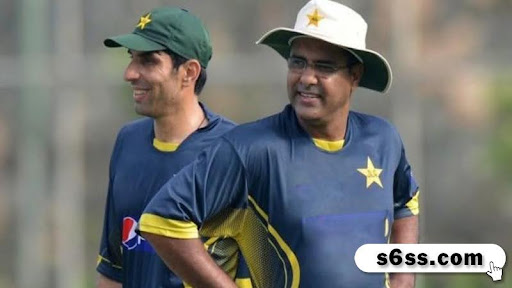The Flaws in Pakistan's New Mentorship Plan: Is It the Right Move?
By HeyBaji2024/9/6
In a bold and somewhat surprising move, the Pakistan Cricket Board (PCB) recently announced that
five legendary cricketers—Waqar Younis, Misbah-ul-Haq, Shoaib Malik, Sarfaraz Ahmed, and Younis
Khan—would serve as mentors for the upcoming Champions Cup. This domestic one-day tournament is
being held as part of Pakistan's preparations for the ICC Champions Trophy, scheduled to take
place in the country next year. The PCB's intent is clear: bridge the gap between domestic and
international cricket to ensure that Pakistan is fully prepared for the prestigious event.
Many supporters and analysts believe that the plan is flawed in several key areas, raising
concerns about its effectiveness and impact on the team. Here, we explore three major reasons
why Pakistan's new mentorship plan may not be the right move.
By appointing five mentors, each with their unique viewpoints and coaching styles, the PCB risks
creating a scenario where conflicting ideas could cause confusion and discord. Although
involving multiple legends is a well-intentioned move, the outcome might result in more
complications than solutions.
Each of these cricketing legends brings a unique approach to the game, honed over years of
experience in playing and coaching. While having diverse perspectives can be valuable, it can
also lead to conflicts if not carefully managed. The PCB might have been better served by
adopting a more focused strategy, appointing just one or two of these stalwarts to advisory or
operational roles where they could have had a more direct and coordinated influence on the
players.
One of the primary criticisms of the new mentorship scheme is that it doesn't offer a direct
solution to the challenge of preparing for the Champions Trophy. While the mentors will
undoubtedly bring a wealth of experience to their respective teams, this alone does not
guarantee that Pakistan will be better prepared for the upcoming tournament.
A more effective approach might have been to identify a pool of 30 to 40 players who are most
likely to feature in the Champions Trophy and put them through an intensive preparation phase.
This could involve specialized training camps, white-ball matches, and other activities designed
to hone their skills and build team cohesion. Instead, the Champions Cup appears to be more of a
reward for past performances rather than a focused preparation effort for the future.
Instability has long been a hallmark of Pakistan cricket, and this new mentorship scheme could
exacerbate the issue. With multiple mentors at the helm, each with their own vision and
approach, there is a significant risk of creating more confusion than clarity. This could lead
to the very instability that the PCB is trying to avoid as it prepares for the Champions Trophy.
Rather than spreading the influence of these legends across multiple teams, the PCB could have
appointed them to roles directly related to the national team. This would have given them a more
focused and stable platform to influence the players and ensure that their insights were
directly contributing to the team's preparation. Instead, the current setup may lead to mixed
messages and uncertainty, which is the last thing Pakistan cricket needs ahead of such an
important tournament.